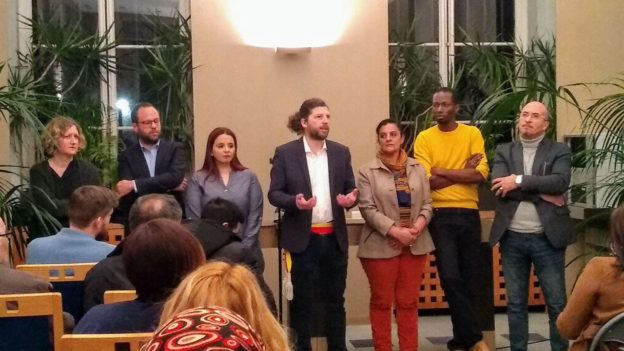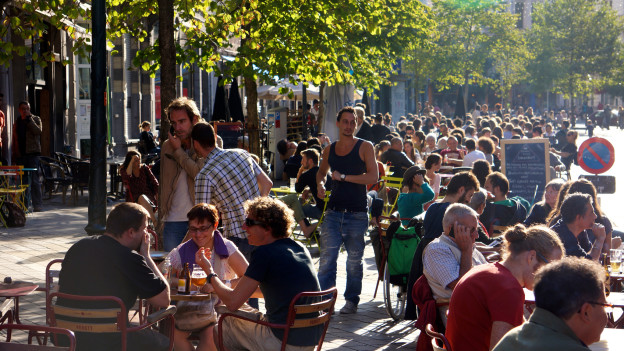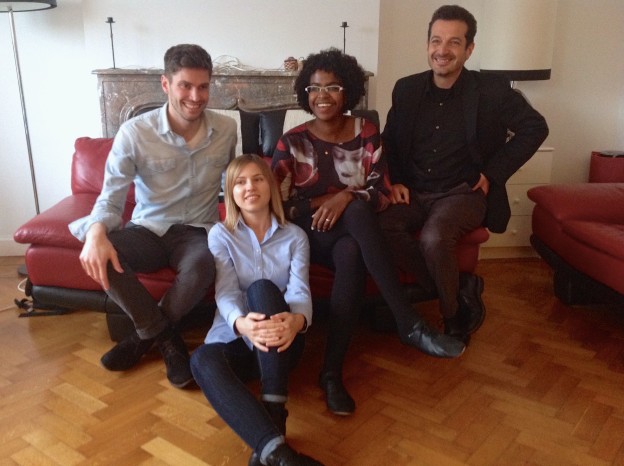In 2019, I completed the process of acquiring Belgian nationality. I had started it the year before, in recognition of the fact that it looks like I am going to stay in my beloved Brussels for the long haul, and in an effort to insulate myself from any bad Brexit-like idea Italian politicians might have. It was no big deal: a bit of bureaucracy, a couple of hundred euro, and the Belgian administrative machine was in motion.
The months passed. And then a few weeks ago, I received a surprise invitation from the mayor of Forest (one of the 19 Brussels communes, the one where I live). He was delighted that some of its foreign residents – myself included – had recently acquired the Belgian nationality. Would I go out to the city hall for a moment of conviviality with him and his colleagues? I RVSP’ed sure, what a nice idea. And tonight, I went.
I was expecting a formality. A short and generic speech from some mayoral underling, followed by some kind of refreshment. I was wrong.
The whole political level of the city government was there. The mayor, and six of the nine échevins, in all their multi-ethnic glory. Nobody was in a rush. They went out of their way to explain that the city hall’s employees, and they personally, were there for the citizens, and that all doors were always open. When a lady reported problems with finding affordable housing, they all stepped up, explaining what each one’s office could do to attack her problem. Local government, at its best.
But it was the humanity of it all that stroke me the most. They seemed genuinely interested in talking to each one of us individually, and delighted that we had chosen Forest as our (permanent, given we had applied for citizenship) home. They even seemed to like us.
People liked them right back. Several new Belgians stood up to acknowledge the quality and humanity of the services they had received, as foreigners first, as Belgians now. One lady beaming, announced that she used to work black, but now her citizen status opens new opportunities. Everyone laughed, and the mayor smiled and said he was sorry she had to do that, and happy that now she was in the clear.
It turned out that Forest has 56,000 inhabitants representing 144 nationalities. In 2019 alone, about 500 residents, like me, acquired the Belgian nationality. These are incredible numbers, that expose the lies about the “migration emergency”, the “invasion”. Over half of Brussels residents were not born Belgian (source). And yet here we are, with our mayor welcoming us to the large, colorful, slightly shady Brussels family (yes, shady, since our cultural heroes are people like these – and proud of it!).
Way to go, my fellow Belgians. No, this country is not perfect. It can be quite dysfunctional. But these things are fixable. What matters most to me, is the ironic, tender humanity you so often manage to infuse in life here. If this is Belgium, I am happy to have chosen to make my home here, and proud to be one of you.


